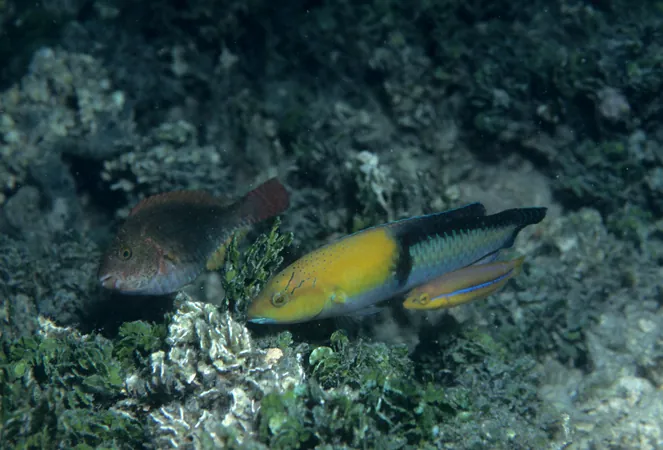
Groundbreaking Discovery: Wrasse Fish Exhibit Smart Tool-Using Behavior
2025-04-02
Author: Li
Groundbreaking Discovery: Wrasse Fish Exhibit Smart Tool-Using Behavior
In a revelation that flips our understanding of animal intelligence on its head, researchers have documented five species of wrasse fish using a fascinating "anvil" technique to crack open shellfish. This remarkable behavior challenges the long-held belief that tool use is a skill exclusive to mammals and birds, revealing that the cognitive abilities of fish have been significantly underestimated.
Led by Dr. Juliette Tariel-Adam of Macquarie University in Sydney, the study published in the journal Coral Reefs provides compelling evidence showing how these colorful reef fishes intentionally select hard-shelled prey like crabs and mollusks, then smash them against rocks to access the nourishing meat within. The research showcases the previously undocumented tool use across various Halichoere wrasses, demonstrating that such behavior is more widespread than scientists initially thought.
Dr. Tariel-Adam stated, "Tool use is typically associated with humans, but this behavior signifies that fish exhibit a level of cleverness that isn’t typically recognized." Researchers engaged in a citizen science initiative collected over 16 new observations from snorkelers and divers, expanding the scope of tool use evidence to realms in the western Atlantic previously unexplored for this phenomenon.
This study highlights the flexibility of the wrasses' tool use, which involves selecting different types of anvils based on the prey they are trying to crack open. Wrasses were also observed switching anvils mid-task to successfully access the food, underscoring their problem-solving abilities.
Professor Culum Brown, the study's senior author, remarked, "Historically, tool use was believed to be a trait unique to primates and select birds. Our research adds to the growing body of evidence that fish possess similar intelligence and adaptability." He emphasized the need for ongoing collaboration with divers and marine enthusiasts to uncover more hidden behaviors among the world's 600 species of wrasses.
This groundbreaking research not only changes our perception of fish intelligence but also raises significant questions about the evolution of tool use across the animal kingdom. As scientists continue to unravel the complexities of marine life, wrasses have earned their place in the spotlight, redefining what it means to be intelligent in the underwater world. The marine ecosystem holds more secrets waiting to be discovered, and who knows how many other fish species might be utilizing tools right under our noses?


 Brasil (PT)
Brasil (PT)
 Canada (EN)
Canada (EN)
 Chile (ES)
Chile (ES)
 Česko (CS)
Česko (CS)
 대한민국 (KO)
대한민국 (KO)
 España (ES)
España (ES)
 France (FR)
France (FR)
 Hong Kong (EN)
Hong Kong (EN)
 Italia (IT)
Italia (IT)
 日本 (JA)
日本 (JA)
 Magyarország (HU)
Magyarország (HU)
 Norge (NO)
Norge (NO)
 Polska (PL)
Polska (PL)
 Schweiz (DE)
Schweiz (DE)
 Singapore (EN)
Singapore (EN)
 Sverige (SV)
Sverige (SV)
 Suomi (FI)
Suomi (FI)
 Türkiye (TR)
Türkiye (TR)
 الإمارات العربية المتحدة (AR)
الإمارات العربية المتحدة (AR)